The Presidents of the Bishops’ Conferences of south-east Europe meet with the Council of Europe and celebrate a Mass for Europe
Saturday, 03 March 2012, 12:10 The annual meeting of the Presidents of the Bishops’ Conferences of south-east Europe is scheduled to take place in Strasbourg, at the St Thomas Cultural Centre (2 rue de la Carpe-Haute - Strasbourg) from 5-8 March 2012. The meeting, the twelfth of its kind and concluding a cycle of discussions on the social and ecclesiastical realities of the south-east European nations, has been organised by the Council of European Episcopal Conferences (CCEE) in collaboration with the Holy See’s Permanent Mission to the Council of Europe.
The annual meeting of the Presidents of the Bishops’ Conferences of south-east Europe is scheduled to take place in Strasbourg, at the St Thomas Cultural Centre (2 rue de la Carpe-Haute - Strasbourg) from 5-8 March 2012. The meeting, the twelfth of its kind and concluding a cycle of discussions on the social and ecclesiastical realities of the south-east European nations, has been organised by the Council of European Episcopal Conferences (CCEE) in collaboration with the Holy See’s Permanent Mission to the Council of Europe.
Nine Bishops’ Conferences will be represented by their Presidents: Albania, Bosnia Herzegovina, Bulgaria, Cyprus, Greece, Moldova, Romania, the International Bishops’ Conference of Saints Cyril and Methodius, and Turkey.
“I believe that this meeting can be very significant for both bodies, especially for the mission of promoting and protecting human rights, the rule of law and democracy at the basis of the Council of Europe”, said Mgr Aldo Giordano, the Holy See’s Permanent Observer at the Council of Europe. “It is sufficient just to glance at some of the issues tackled at a European level to become aware of their topicality for the countries of south-east Europe and their Churches. One of the topics discussed in Strasbourg is freedom of religion: the presence of religious symbols in public places, discrimination for religious reasons, the rights of minorities, the religious dimension of inter-cultural dialogue... There is a fundamental debate, very sensitive and also dangerous, about the reality of the family, on the rights of children, and the responsibility of parents. The speed of science and technology imposes ever greater problems in the field of bioethics and the protection of life. Europe is asking itself about the seriousness of the economic and financial crisis; about relations with “neighbours”: the Middle East, North Africa. We live in a Europe where the question of the respect of human rights is far from being an obvious fact: continually in the Council issues about the situation of migrants, refugees, the Rom peoples, the disabled, etc., are being tackled. Therefore it is urgent that Christians and the Churches become increasingly aware of and more qualified about issues which are tackled at a European level and are protagonists in the places where decisions are taken”.
In Strasbourg, the participating bishops will be able to discuss the themes on the Council of Europe’s agenda in a series of meetings with Council officers, including the General Director of Programmes, Ms Gabriella Battaini-Dragoni; Judge Jean-Paul Costa, former President of the European Court of Human Rights; and the President of the Venice Commission, Dr Gianni Buquicchio.
“The decision to conclude this first cycle of discussions about our social and ecclesiastical bodies in Strasbourg this year with an examination-dialogue with some representatives from the Council of Europe came very naturally because this European body is the primary international inter-governmental organisation of which all our governments are members”, emphasised Mgr Franjo Komarica, President of the Bishops’ Conference of Bosnia Herzegovina. “At the same time, we know how much the work undertaken in the offices of Strasbourg has a very important impact not just in political, but especially social and cultural terms. In this common task of building up European fraternity and working for the good of our peoples, the Catholic Church, our local Churches, feel called to make their specific contribution and offer their support. For this reason, we intend to meet some representatives of this institution to deepen our mutual knowledge, to bring the voice of our church bodies and to examine together how they can be recognised and appreciated as Church in these member countries and thus contribute to the good of our continent”.
A particularly important moment for the Presidents of the Bishops’ Conferences will be the Mass for Europe, scheduled for Wednesday 7 March at 1830 in Strasbourg Cathedral. Invited to the celebration, presided over by the local Archbishop Jean-Pierre Grallet, will be a number of people working in the European institutions: Ambassadors and officials from the Council of Europe, judges from the European Court of Human Rights, as well as members of the church communities and organisations which take part in the European journey from close quarters.
The meeting will be held behind closed doors.
www.ccee.ch
LATEST NEWS

We can imagine what the prayer of the prisoners in the Russian torture centers in the Ukrainian Kharkiv region was like – Head of the UGCC on the 206th day of the war 17 September
A vast cemetery, a mass burial, was found near the city of Izyum, in which more than 400 innocently killed and tortured people have already been...
-
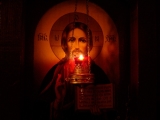 Глава УГКЦ у 158-й день війни: «Нехай Господь прийме з уст нашої Церкви псалми та моління за всіх тих, які особливо просять нашої молитви»
Глава УГКЦ у 158-й день війни: «Нехай Господь прийме з уст нашої Церкви псалми та моління за всіх тих, які особливо просять нашої молитви»
-
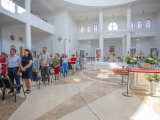 «Сила, яка походить із вірності Христові, є стержнем, який ніхто не може зламати», – Блаженніший Святослав
«Сила, яка походить із вірності Христові, є стержнем, який ніхто не може зламати», – Блаженніший Святослав
-
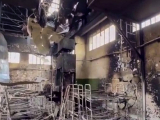 Глава УГКЦ у 157-й день війни: «В ім’я Боже ми засуджуємо звірства в Оленівці і світ повинен це засудити як особливий вияв дикості й жорстокості»
Глава УГКЦ у 157-й день війни: «В ім’я Боже ми засуджуємо звірства в Оленівці і світ повинен це засудити як особливий вияв дикості й жорстокості»
-
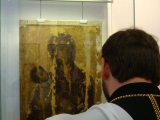 «Боже, почуй наш плач і поспіши нам на допомогу і порятунок!», – Глава УГКЦ у 156-й день війни
«Боже, почуй наш плач і поспіши нам на допомогу і порятунок!», – Глава УГКЦ у 156-й день війни
-
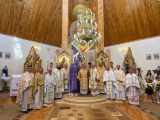 «Бог йому дав серце і душу українського народу»: відбулася щорічна проща до Прилбичів з нагоди уродин митрополита Андрея Шептицького
«Бог йому дав серце і душу українського народу»: відбулася щорічна проща до Прилбичів з нагоди уродин митрополита Андрея Шептицького
-
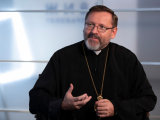 Глава УГКЦ: «Я горджуся українськими патріотами, які без найменшої краплі ненависті готові захищати своє»
Глава УГКЦ: «Я горджуся українськими патріотами, які без найменшої краплі ненависті готові захищати своє»
-
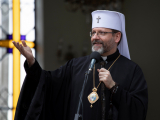 Блаженніший Святослав закликав українську молодь скласти присягу на вірність Христові
Блаженніший Святослав закликав українську молодь скласти присягу на вірність Христові
-
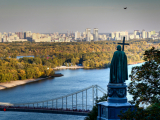 Глава УГКЦ у 155-й день війни: «Помолімося, щоб не втратити скарбу віри князя Володимира»
Глава УГКЦ у 155-й день війни: «Помолімося, щоб не втратити скарбу віри князя Володимира»
-
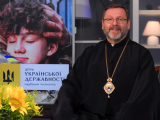 Блаженніший Святослав у День державності України: «Наша Держава – це для нас питання життя або смерті»
Блаженніший Святослав у День державності України: «Наша Держава – це для нас питання життя або смерті»
-
 Глава УГКЦ у 154-й день війни: «Нехай Господь Бог прийме у свої вічні обійми журналістів, які віддали за правду своє життя в Україні»
Глава УГКЦ у 154-й день війни: «Нехай Господь Бог прийме у свої вічні обійми журналістів, які віддали за правду своє життя в Україні»
-
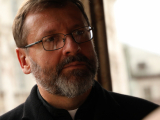 Глава УГКЦ у 153-й день війни: «Принесімо наш біль перед Боже обличчя і будьмо певні, що Він нас вислухає»
Глава УГКЦ у 153-й день війни: «Принесімо наш біль перед Боже обличчя і будьмо певні, що Він нас вислухає»
-
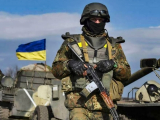 Глава УГКЦ у 152-й день війни: «Помолімся молитву заступництва за наших воїнів»
Глава УГКЦ у 152-й день війни: «Помолімся молитву заступництва за наших воїнів»
-
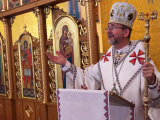 «Віруюча людина не може бути байдужою, коли бачить страждання іншої людини», – владика Богдан Дзюрах
«Віруюча людина не може бути байдужою, коли бачить страждання іншої людини», – владика Богдан Дзюрах
-
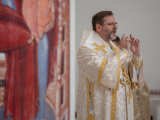 «Серед нашого страждання творімо простір для прояву Божої всемогутності», – Глава УГКЦ у 6-ту неділю після П’ятдесятниці
«Серед нашого страждання творімо простір для прояву Божої всемогутності», – Глава УГКЦ у 6-ту неділю після П’ятдесятниці
-
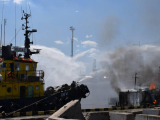 Глава УГКЦ у 151-й день війни: «Російське віроломство ми перемагаємо силою любові до нашої Батьківщини»
Глава УГКЦ у 151-й день війни: «Російське віроломство ми перемагаємо силою любові до нашої Батьківщини»

